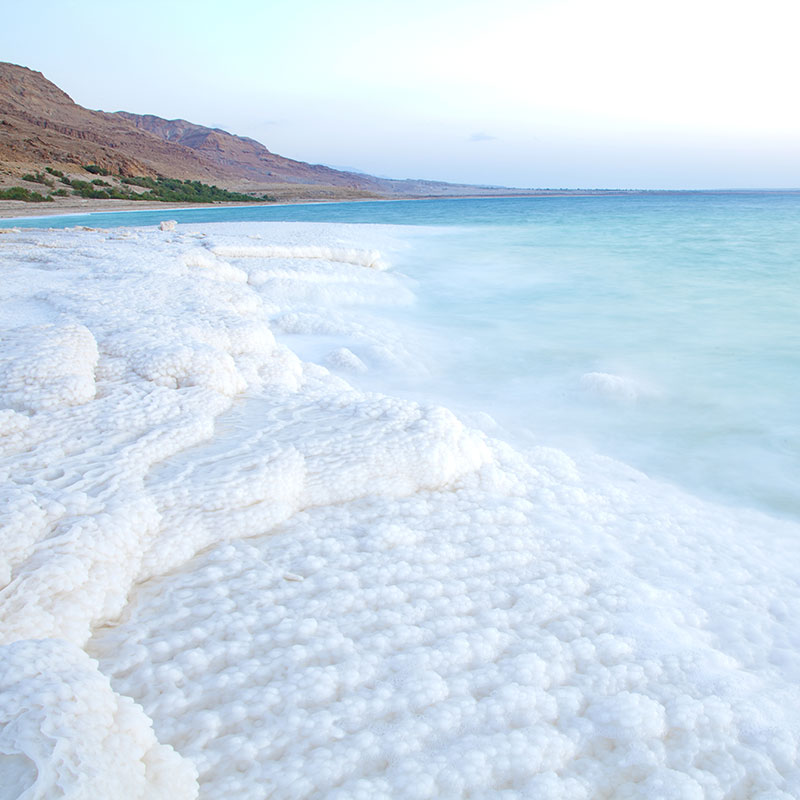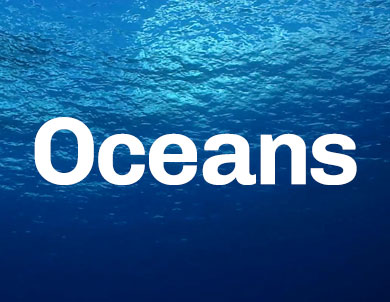Seawater is known for being quite salty.
Salt in the sea, or ocean salinity, is mainly caused by rain washing mineral ions from the land into water.
Carbon dioxide in the air dissolves into rainwater, making it slightly acidic. When rain falls, it weathers rocks, releasing mineral salts that separate into ions. These ions are carried with runoff water and ultimately reach the ocean.
Sodium and chloride, the main constituents of the type of salt used in cooking, make up over 90% of all the ions found in seawater. Around 3.5% of the weight of seawater comes from dissolved salts.
Some mineral ions are used by marine animals and plants, removing them from the water. The leftover minerals have built up in concentration over millions of years.
Underwater volcanoes and hydrothermal vents on the seabed can also release salts into the ocean.
Why is the Dead Sea so salty?
Some parts of the ocean are more saline than others, particularly where there are higher levels of evaporation, such as in the Red Sea.
Isolated bodies of water can also become extra salty, or hypersaline, through evaporation. The Dead Sea in the Middle East is an example of this.
The high salt content increases the water's density, which is why people float in the Dead Sea more easily than in the ocean. This effect is seen in other hypersaline bodies of water as well, such as in Senegal's Lake Retba.
In contrast, salinity in some areas may be decreasing due to climate change. Melting sea ice adds freshwater to the ocean. Changes in saltiness and temperature can disrupt the ocean currents that move important nutrients around the world.

A build-up of salt on the shore of the Dead Sea in Jordan © Zaid Saadallah/ Shutterstock
